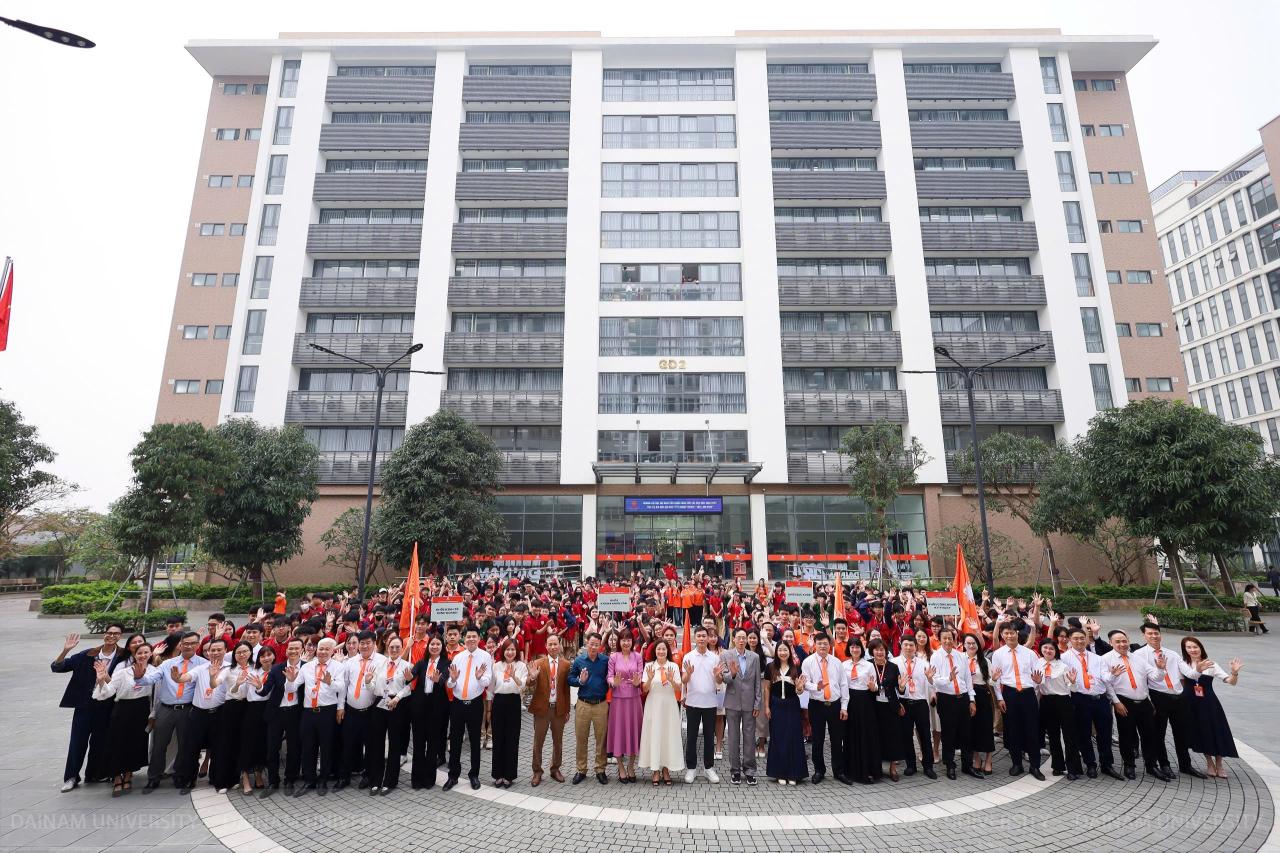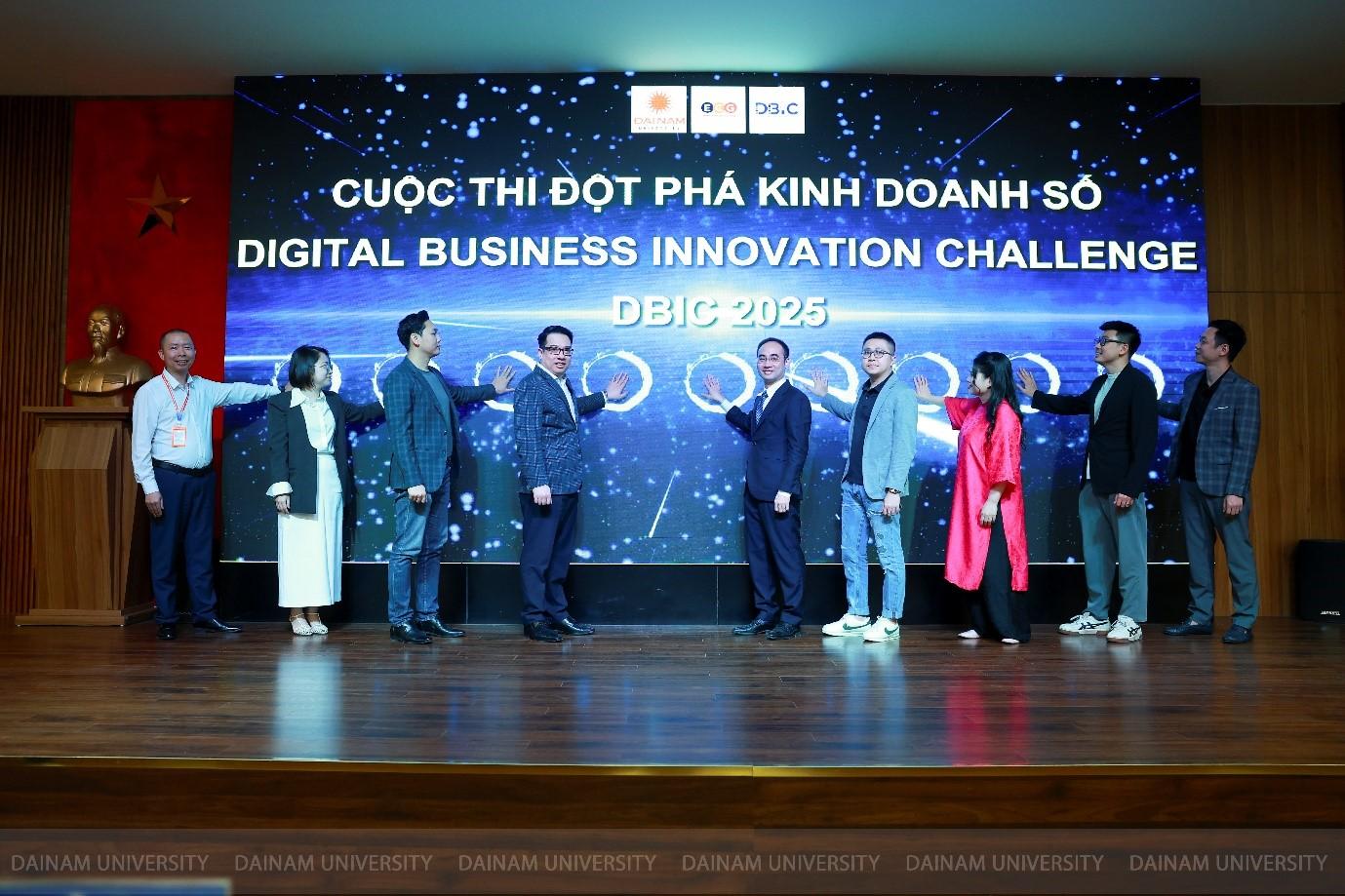Why is E-commerce a "worth the money" choice for young people?

“In the future, all businesses will be online businesses,” Andy Grove - the best CEO in Silicon Valley once declared. And he was right! The 4.0 industrial revolution, online shopping habits and the outstanding “adaptability” of the e-commerce industry during the Covid-19 pandemic have made e-commerce one of the most suitable career groups in the digital age, a “worth every penny” choice for young people.
What is e-commerce?
E-commerce was initially understood simply as the activity of buying and selling products or services through telecommunications networks and electronic means. E-commerce then included activities such as: buying, selling, payment, ordering, advertising, customer care, delivery through electronic means and telecommunications networks.

E-commerce is considered one of the hottest and most suitable industries in the digital age.
In a narrow sense, e-commerce is a commercial activity that is carried out in part or in full through telecommunications networks and electronic means. Transactions, marketing, advertising, and payment activities are carried out quickly and effectively, helping to save costs and expand the scope of business.
In a broader sense, e-commerce includes activities that apply information and communication technology and electronic means from the beginning to the end of the entire business process. E-commerce is carried out through electronic means and telecommunications networks, designed to help complete business goals faster, better and smarter. E-commerce is then understood as electronic business, which can be applied in part or the entire business cycle and includes business transactions between businesses and consumers, between businesses and businesses and with related organizations and individuals.
The speed of development is like "storm" and becomes an indispensable part of businesses.
Since 1995, e-commerce has grown beyond both of these areas, and has created completely new, unprecedented business models that have affected most individuals, organizations and businesses. At the same time, e-commerce has also been applied by traditional businesses as an indispensable part of their business operations to form comprehensive business models that combine traditional and electronic.

E-commerce is growing by leaps and bounds.
After 25 years, global e-commerce has grown continuously to reach 1,000 billion USD between businesses and consumers, about 6,000 billion USD between businesses and businesses with an average growth rate of 15-18% per year. In Vietnam, in 2020, retail e-commerce reached 11.8 billion USD, accounting for 5.5% of total retail sales of goods and services, with a growth rate of 18%. And since then, e-commerce has become an indispensable part of businesses and digital economies of countries around the world and in Vietnam.
Today, e-commerce has become the platform for new communications and services, with new e-business models offering capabilities that traditional business models cannot offer.
Just as automobiles, airplanes, and electronics shaped 20th-century commerce, e-commerce models will shape business and society in the 21st century.
The strong growth of e-commerce towards a digital economy is being led by leading businesses, including traditional businesses such as Walmart, Ford, IBM, General Electrics and newly formed electronic businesses such as Google, Facebook, Amazon, Apple.

In Vietnam, the growth rate and human resource demand of the e-commerce industry are very large.
Since 2015, e-commerce has continued to move into a new wave of development with social commerce, mobile commerce, and local commerce based on customer location.
"Expensive" profession in the digital age
E-commerce has become an indispensable part of traditional businesses, from finance, banking, aviation, transportation, tourism to industrial production and consumer production... creating tens of thousands of new jobs in all fields from e-marketing to e-commerce management, from e-commerce startups to management information systems.
E-commerce has created electronic marketplaces, digital marketplaces, e-commerce platforms with more transparent pricing, global scale, and more efficient transactions. E-commerce directly impacts the relationships between businesses and suppliers, customers, competitors, and partners, as well as the way companies market, advertise, and sell their products.
E-commerce directly and indirectly affects business operations from production, finance, information systems, logistics, sales, customer care, e-commerce technologies help reduce costs and increase profits, strengthen relationships with partners and customers.

E-commerce is a hot major, attracting the top attention of young people in every admission season.
E-commerce job opportunities
Where to work?
E-commerce graduates can work in the Business Department, Marketing Department of the E-Business Department, E-Marketing (Online Marketing, Digital Marketing) in thousands of businesses that are strongly applying e-commerce today such as:
- Bank
- Finance
- Aviation
- Tourism
- Hotel
- Import and export
- Retail businesses
Jobs related to operation, administration and construction of electronic business systems.
E-commerce graduates can also work in thousands of businesses specializing in e-commerce, typically: Shoppee, Mobile World, Tiki, Lazada, Dien May Xanh, Sendo, FPT shop, Nguyen Kim store
E-marketing jobs: online advertising communications, online customer management, website SEO specialist, Google and Facebook advertising specialist...

Dai Nam University officially trains in E-commerce from the 2021-2022 school year.
Where do you work?
Upon graduation, students majoring in e-commerce have many good job positions in both traditional and e-commerce businesses. Popular e-commerce job positions include:
- E-commerce Director (E-business Director) in businesses that are applying strong commerce above.
- E-commerce specialist in businesses that are applying e-commerce strongly above.
- E-marketing Director (E-Marketing Director) in businesses that are strongly applying e-commerce.
- Digital marketing specialist (multi-channel marketing, web, social media, mobile, Facebook Ads, Google, Youtube Ads, Google Ads, SEO)
- In charge of e-commerce website
- Digital content development specialist
- Online sales management (website, facebook, zalo, live stream, order management, online product management)
- Expert in analyzing, designing, building, operating, and managing e-business systems: managing, building, and developing online transaction systems and online business at companies and businesses with e-commerce activities.
- Online market research specialist (searching for markets and customers via the Internet).

Dai Nam University is the first non-public school in Hanoi to train in the 4.0 generation of e-commerce according to a special mechanism, increasing the duration of internships at businesses.
Special features at Dai Nam University when training in E-commerce
E-commerce major subjects
- E-commerce management
- E-business model
- E-commerce strategy
- Management information system
- E-Marketing
- Electronic banking
- Electronic Finance
- E-logistics
- Electronic Customer Relationship Management (E-CRM)
- Enterprise Resource Planning (ERP) Information System
- Electronic Supply Chain Management (e-SCM)
- Starting an e-commerce business
- E-commerce law
Advanced courses in e-commerce
- Design and build e-commerce applications
- Application of artificial intelligence in e-commerce
- Design and build e-commerce app
- Information security and safety in e-commerce
- Industrial Revolution 4.0, digital transformation and e-commerce
Dai Nam University is the first non-public school in Hanoi to train in the 4.0 generation of e-commerce according to a special mechanism, increasing the duration of internships at businesses.
Students have the opportunity to study and work with experts, especially being directly guided and taught by business owners in this field. In particular, the Faculty of E-commerce and Digital Economy, Dai Nam University, in collaboration with business partners, creates a large ecosystem for e-commerce startups so that students have the opportunity to practice, gain experience and intern right from the first year.

The program structure is built in an application-oriented direction with the enhancement of professional skills, soft skills and foreign language skills.
The training program regularly updates the world's advanced scientific and technological knowledge to meet the continuous development trend of e-commerce and digital economy in the era of industrial revolution 4.0.
TT Board









